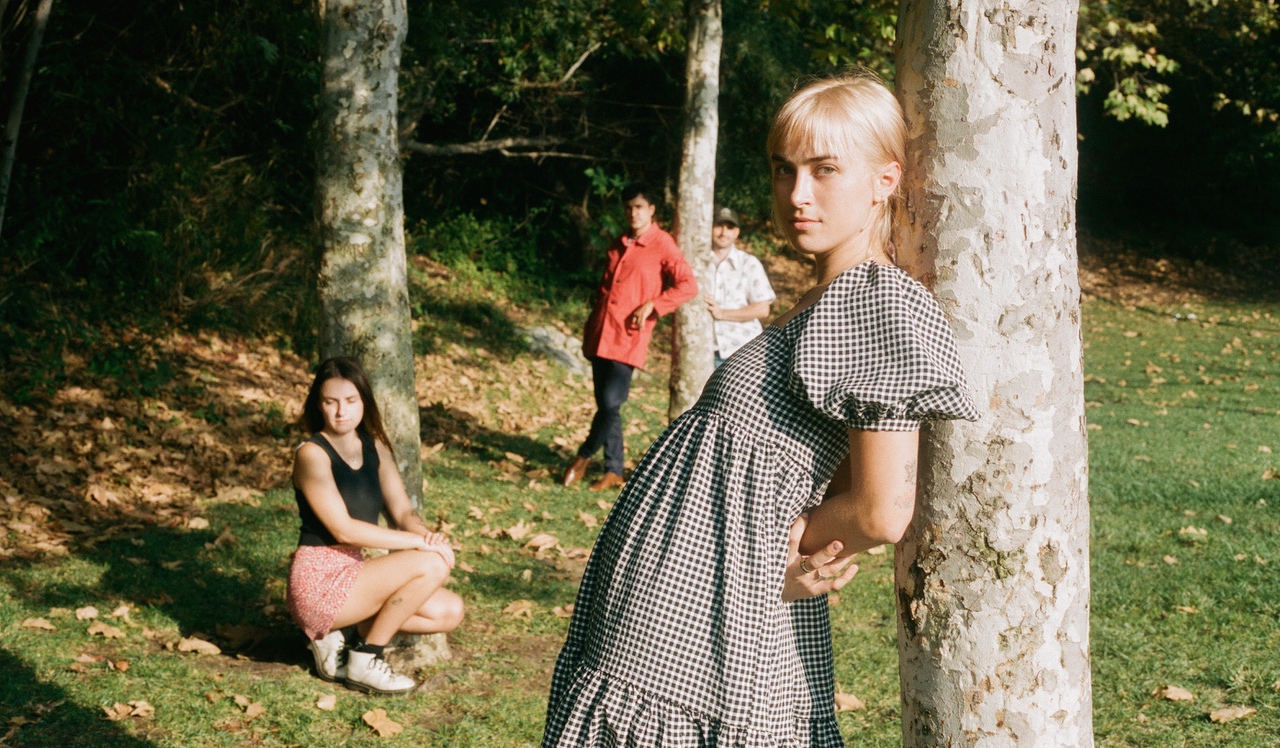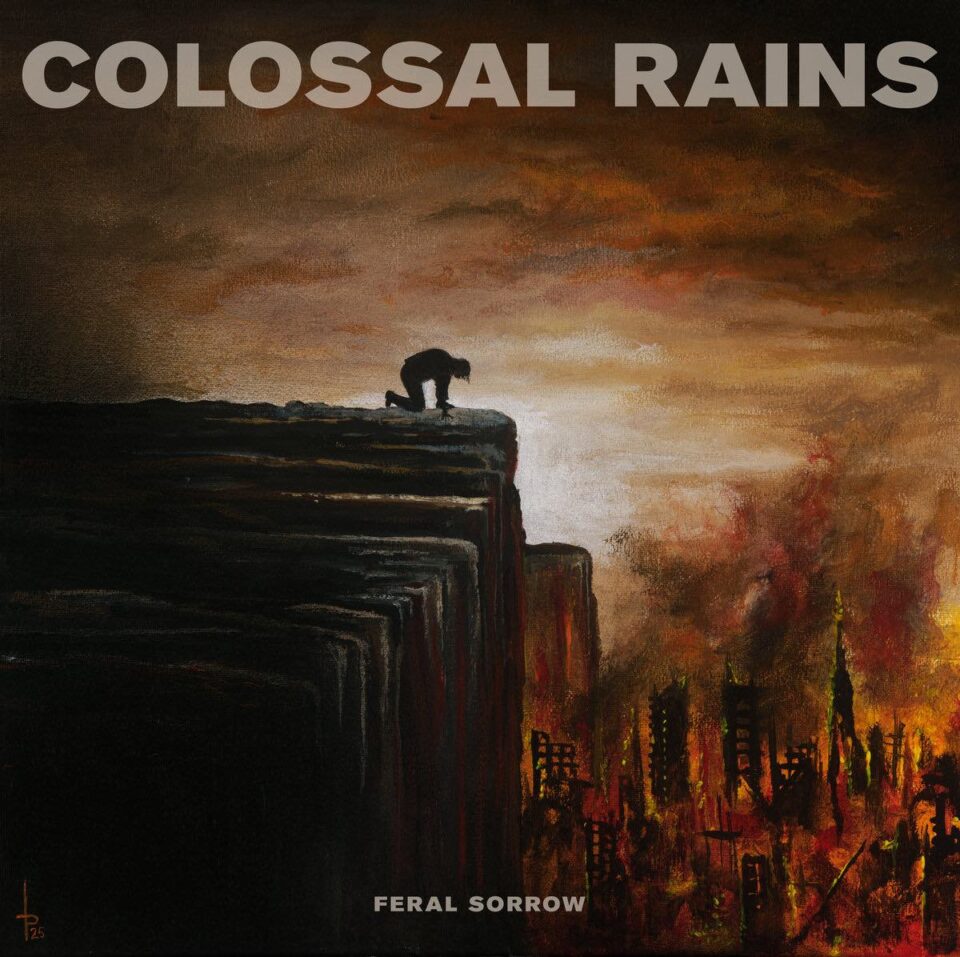Conceived by members of Yucky Duster and Public Practice following a move from Brooklyn to Los Angeles, Le Pain makes retro, twee-oriented pop that toes the line between Stereolab and Jane Birkin. Enlisting the help of multi-instrumentalist Scott Rosenthal and bassist Alan Everhart, family members Madeline and Olivia Babuka Black have a knack for cheffing up sunny, bilingual music that wouldn’t sound out of place in a ’60s art film. Synths and guitar chords swirl atop crashed drums on the band’s first single “Troisième Groupe.” Chirpy lyrics shift between French and English, complementing the track’s stylish, mid-century charm. At once sexy, alluring, and spry, “Troisième Groupe” is the perfect cartoonish midsummer anthem to soundtrack your next drive to the beach.
The track arrives ahead of the band’s forthcoming album, due later this year on the brand new label Lucky Buckeye. Stream “Troisième Groupe” and check out a brief Q&A with the band below.
How did the collaboration come about? What drew you to working together?
Madeline and Scott met playing music in Brooklyn, and decided to jam. She was taking French lessons and improvised a Serge Gainsbourg-y spoken word song which told the story of a stylish dog walking around Paris. There was a Casio laying around and some bongos, a wind instrument; the whole aesthetic lined up quickly. It was apparent that a new band must be formed to make more songs like this. Madeline claimed her sister Olivia had a gorgeous silky timbre to her voice, and Scott claimed that he had a bass playing friend Alan in LA who rode a motorcycle. Both of these claims proved accurate.
What does “Le Pain” mean, and why did you choose that band name?
Le Pain rhymes with “The Rain,” and is meant to be pronounced incorrectly on purpose. If someone accidentally pronounces it correctly, that’s fine too. A word that means “bread” or “pain” depending on what city you live in is funny to us. We have serious respect for the cultural integrity of the French—in our reverent imaginings they don’t tear down beautiful old buildings to build drab condominiums. But we also enjoy strip malls, hot dogs, and roller rinks—the high-/low-brow separation doesn’t exist for us (or anyone?) anymore, it’s more just good quality versus bad. We don’t wish to, say, eat overcooked hot dogs in poorly constructed old French buildings.
How did the move from New York to California impact you creatively?
Not much yet, especially since a bunch of the writing took place in Atlanta. LA still looks more like an exotic tropical paradise than familiar home turf. If we start introducing the names of very specific beaches and locales then you will know that the city is beginning to impact us creatively. But it’s exciting to be in a new environment, on the precipice of plugging into a new scene, and meeting new people. We’re all pretty friendly and diligent about “smile, eye contact” etc.
The bilingual nature of the project is very cool. What made you decide to write lyrics in both French and English?
After Portuguese, French is our favorite sung language. It sounds soft and pillowy. If we made industrial music, we would sing in German because it’s more percussive. But if you wanna write a sweet melody and add reverb and harmonies, it’s hard to beat French.
What’s next for Le Pain?
We have many partially completed recordings that need distorted keyboard overdubs, drum bus compression, self-destructive characters acting in haste, and bass lines that wind around like Mulholland Drive.







